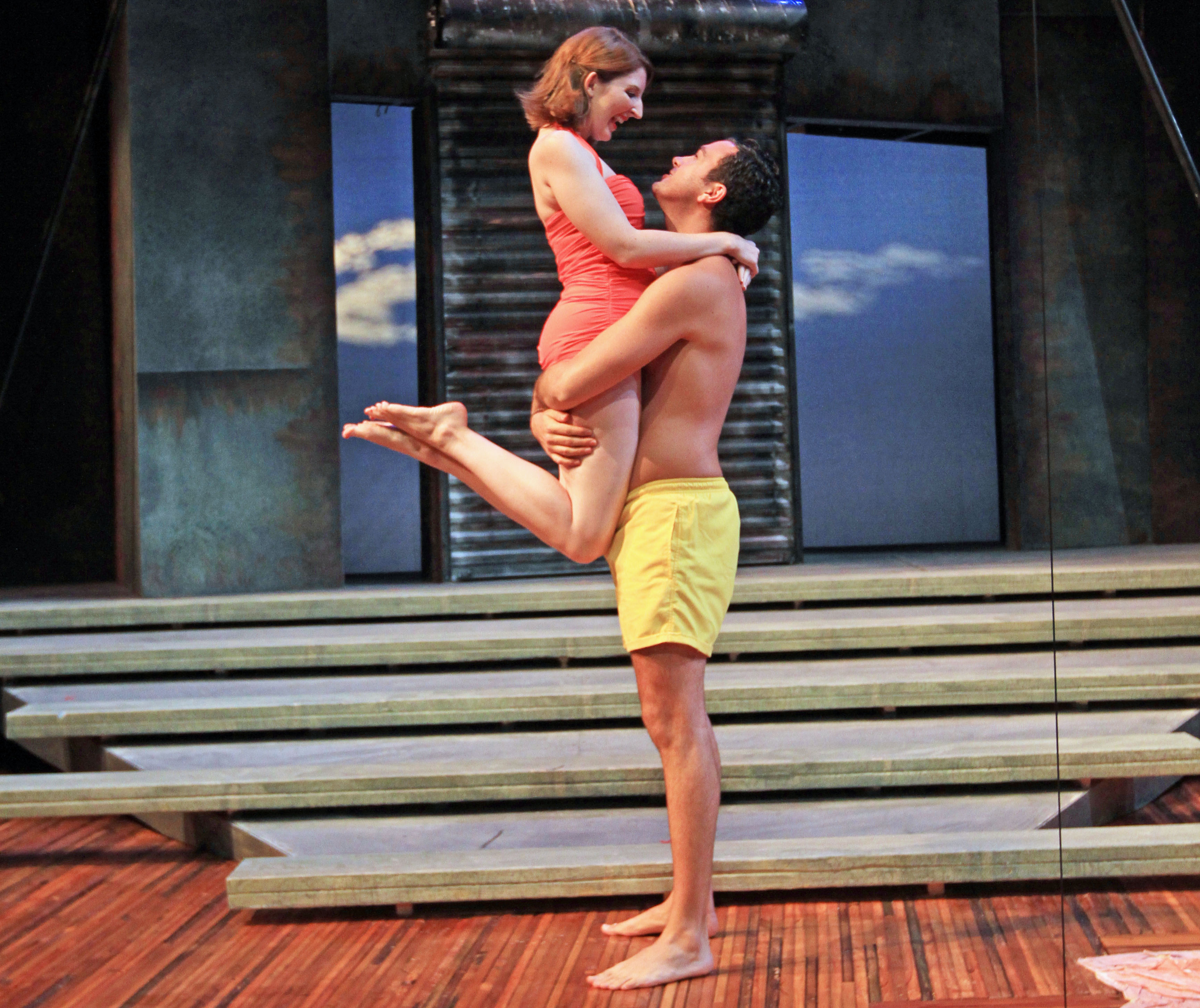
Eurydice by Sarah Ruhl. Villanova Theater, 2015
This 2003 play by Sarah Ruhl takes the ancient myth of Orfeo and Eurydice and changes its perspective. The playwright adds the character of the heroine’s father which forces Eurydice to choose between parental love and romantic love.
As in the ancient myth, Eurydice dies on their wedding day and goes to the Underworld. Orpheus travels there to bring Eurydice back to life. In the Ruhl version, Eurydice must make a tough choice between returning to earth with her husband versus staying in hell with papa.
This production lacks the visual and aural glamour of the Wilma Theater’s 2008 staging by Blanka Zizka, but it has the most believable Orpheus and Eurydice among three casts that I’ve seen. This pair almost convince us that they are meant for each other.
You’ll notice that I said almost.
The love between Orpheus and Eurydice is shallow from the start, and it’s a trickle in contrast to the larger pool where family clearly has greater import. Their incompatibility is obvious in the opening scene where Orpheus and Eurydice are romping on a beach and Orpheus is obsessed with music while his fiancee can’t even carry a melody or stay in rhythm. He also lectures that her way of looking at the world is wrong.
The playwright has stacked the deck in favor of familial over romantic young love, and that is the play’s biggest dramatic flaw.
As in the original version, Orpheus charms his way into the underworld to rescue her. They’re granted permission to return to life on earth with the stipulation that Orpheus must lead the way and not look back at his bride until they’re on earth again. In the myth, Orpheus turns to make sure she is following him, and this act consigns Eurydice permanently to hell. Ruhl’s script has Eurydice call out to Orpheus, thus it is she who ensures that they’ll be parted forever.
Even though this is a university production, Rebecca Jane Cureton and Stephen Tornetta are graduate students, ages 27 and 30, and they don’t appear as callow as in other productions. This is due not only to their personae but also to James Ijames’s strong direction.
Eurydice’s father wrote a significant letter to his daughter, saying “a wedding is for a daughter and a father, who stop being married to each other on that day.”
Gradually, Eurydice remembers her affection for the one man she can always depend on: her father.
Comic relief is provided by three women playing the parts of stones. You will recall that in the myth they wept in sympathy with the lovers. Here they are wise-cracking commentators and guides, sort of a combination of a Greek chorus and the witches from Macbeth.
This production opened on Yom Kippur, the holy day on which Jews devote considerable time to remembering their deceased family members, and — by coincidence — on the same day that Pope Francis spoke about the importance of family. These events gave focus to the play’s challenging question: What’s most important, familial or romantic love?
See other reviews on The Cultural Critic